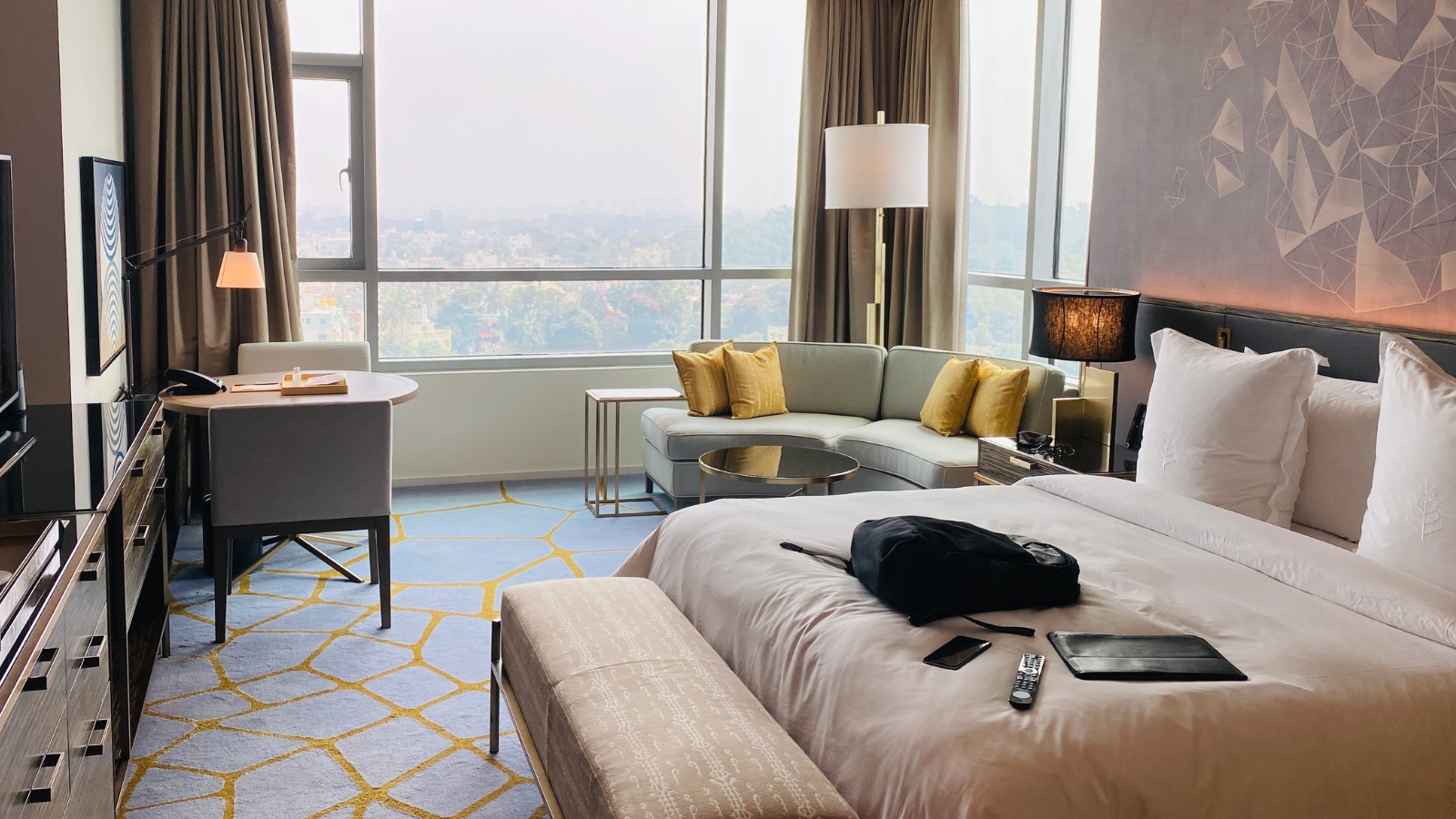
In today’s competitive hospitality landscape, owners and general managers of small hotels struggle to find the pricing ‘sweet spot’. Striking an optimal balance between attracting guests and maximising revenues can feel like a constant tightrope walk, but when you understand the basic principles of pricing strategies for small hotels, you can achieve a higher occupancy and maximise your profits.
In this article, I state what a hotel pricing strategy is, factors affecting pricing for a small hotel, when a small hotel should adjust its room rates, the benefits of a great pricing strategy for a small hotel, the best hotel pricing strategies for small hotels and if a dynamic pricing strategy can be great for small hotels.
What Is A Hotel Pricing Strategy?
A hotel pricing strategy is long-term, overall plan as to how you intend to set room rates for the purpose of maximising your revenues and profitability.
It’s about finding that ‘sweet spot’ between charging enough to maximise profits, whilst keeping prices sufficiently competitive to continuously attract sufficient guests.
For example, under a Demand-Based Pricing Strategy, a small hotel would adjust room rates based on how busy the hotel is expected to be.
Which Factors Affect Pricing At Small Hotels?
Small hotels face similar pricing considerations to larger hotels, but some factors can have a bigger impact on their prices and consequentially their revenue and profit.
Below are some of the key factors that should be taken into consideration when determining pricing at small hotels:
Competitiveness: For small hotels, keeping an eye on local competitors is crucial. They may need to be more flexible with pricing to compete with larger hotel chains and online travel agencies (OTA’s).
Demand & Seasonality: Just like larger hotels, small hotels may adjust prices based on anticipated demand. Local events, for example, can drive prices up, whilst low demand days may require discounts or a promotion to entice guests.
Guest Reviews & Reputation: Guest reviews are even more important for small hotels because of their limited size. If they are positive, they can build trust amongst prospective guests and help the hotel justify higher prices.
Hotel Amenities & Facilities: Whilst a small hotel may not have a luxurious wellness spa, it can highlight its unique features. Does it have an urban rooftop oasis or a distinct focus on providing local experiences? Unique amenities and facilities can also help justify increasing prices.
Location: Location has a huge impact. Small hotels in prime tourist destinations or close to major local attractions can command higher rates. Properties in more remote locations may have to price more strategically to consistently attract an adequate number of guests.
When Should A Small Hotel Adjust Its Room Rates?
A small hotel should be flexible and regularly consider adjusting its pricing strategy throughout the year, to maximise occupancy and revenues. Below are some key instances in which to consider changing your prices:
- Change In Amenities Or Facilities: If you have improved your amenities or facilities and consequently offer a more attractive and enjoyable stay for your guests, this creates a stronger value proposition that may enable you to charge a premium.
- Competitor Activity: Regularly monitor what similar hotels in your local market are charging. You may need to adjust your rates to remain competitive with your competitors.
- Cost Changes: If you experience a significant increase in operational costs, you may need to adjust your rates, particularly your minimum price(s), to maintain profitability.
- Demand Fluctuations: If you see an influx of reservations for a particular date(s), you should consider raising prices to capitalise on the high demand. Conversely, if demand is lower than anticipated, consider lowering prices to attempt to sell rooms.
- Online Reputation: If you are receiving a lot of great reviews and improve your review score, it increases the perceived value of your rooms and consequently your customers propensity to pay – this should prompt you to consider increasing prices accordingly.
Tip! Consider using a Revenue Management System (RMS), such as MavPERFORM, to automate price adjustments based on real-time data relating to competitor pricing, market trends and occupancy.
What Are The Benefits Of A Great Pricing Strategy For A Small Hotel?
A great pricing strategy is essential for the success of any hotel and can yield significant benefits for small hotels. A well-crafted pricing strategy can help your small hotel thrive with:
- Enhanced Guest Value Perception: Strategic pricing can help you position your hotel competitively and communicate the value you offer. By adjusting prices based on amenities, competitors, costs, demand, facilities, location and reputation, you can ensure guests feel they are getting a fair deal.
- Higher Occupancy Rates: Empty rooms mean lost revenue. A great small hotel pricing strategy helps you find the optimal equilibrium between attracting guests and maximising your RevPAR. You can use discounts or packages to fill rooms on low demand days and during the low-season to drive occupancy.
- Improved Profitability: Effective pricing takes into account your operational costs. You can factor in labour, maintenance and other expenses to ensure your rates enable you to be profitable.
- Increased Revenue: By setting the right prices, you can attract your target customers whilst ensuring you make profit on each reservation. Strategic pricing allows you to maximise income during peak season and sell rooms during the off-season.
- Informed Business Decisions: Developing a data-driven pricing strategy involves analysing competitor pricing, guest feedback and market trends. Undertaking this process provides valuable insights that can inform other aspects of hotel operations, marketing campaigns and staffing requirements.
A great pricing strategy is a roadmap for success for a small hotel – it helps you navigate the competitive landscape, optimise occupancy, revenues and ultimately, build a profitable and sustainable business.
What Are The Best Hotel Pricing Strategies For Small Hotels?
Whilst there is no single “best” strategy, here are 5 pricing strategies for small hotels, which you can combine and leverage to optimise occupancy and revenues:
1.Competitor-Based Pricing: Identify your competitors and their rates to inform your pricing strategy. Don’t copy them – use this data to decide if you should price match, offer a premium experience at a higher price, or undercut.
2. Daily BAR (Best Available) Pricing: Dynamically adjust your Best Available Rate (BAR) based on real-time demand forecasts. Charge more on peak dates and days and potentially offer lower prices on low-demand days to attract bookings and improve occupancy.
3. Demand-Based Pricing (Dynamic Pricing): Use booking trends and market data to adjust prices for specific dates, not just seasons. For instance, if a major event is taking place in your town on a day when demand would normally be lower, raise prices for that date to capitalise on the increased demand.
4. Length-Of-Stay Pricing: Encourage longer stays by offering discounts for multi-night bookings. This can increase guest spend on additional products and services during their extended stay and boost total revenue.
5. Occupancy-Based Pricing: Charge more when close to full occupancy to leverage the high demand for your rooms and consider lowering rates when your occupancy is low to incentivise bookers and fill vacant rooms.
Remember, the best approach will depend specifically on your hotel, location, and target customer(s). It’s also important to experiment with different pricing strategies and track your results to see what works best for your property.
Is A Dynamic Pricing Strategy Great For Small Hotels?
Dynamic pricing is one of many proven pricing strategies for small hotels – it can provide competitive advantage, improve occupancy and increase revenues. To implement one effectively, I recommend to:
Focus On Value: Don’t reduce prices without good reason. Even in the low season, ensure your rates still reflect the value you offer guests. Consider bundling your room rate with additional products and services to create attractive packages.
Leverage Technology: There are several revenue management systems available that have been designed specifically for small hotels. These systems can automate competitor rate shopping, data collection and even compute optimal prices to maximise revenues for your property.
Monitor & Refine: Dynamic pricing is an ongoing process. Continuously monitor the impact of your pricing strategy on revenues and profits. Be prepared to adjust your approach based on what works for your hotel and your target customers.
Start Simple: Begin by implementing a seasonal pricing strategy and gradually incorporate adjustments based on demand fluctuations. Consider, initially, just making adjustments when demand is high – this will allow you to experiment, learn and respond based on results.
Tip! Using dynamic pricing effectively requires an understanding of competitor pricing, market trends and constant monitoring and potential adjustment of prices, which can be both challenging and time-consuming for small hotels with limited staff – consider outsourcing to a Revenue Management Expert who can do this for you.
By implementing dynamic pricing effectively, small hotels like yours can level the playing field, optimise occupancy, revenues and remain competitive in the ever-changing hospitality landscape, but it should be implemented strategically. Consider the time required, leverage technology and be honest and transparent with guests as to why prices change.
Does Your Small Hotel Need A Better Pricing Strategy?
At MavREV, we specialise in providing outsourced revenue management expertise remotely at a fraction of the cost associated with employing a full-time revenue manager. We maximise RevPAR using MavPERFORM RMS, an algorithm-powered, cloud-based and responsively designed RMS and Price Optimiser that saves valuable costs and time!
Interested? Get in touch to book your free 1-2-1 consultation now!



